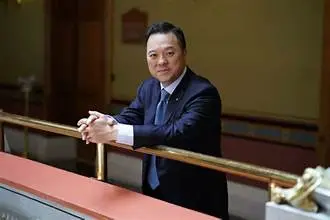Signaling the growing tide of support for medical marijuana, North Shore-LIJ Health System, the largest health care network in the state, has partnered with Silverpeak Apothecary, a medical marijuana producer and provider in Aspen, Colo., to bid for one of the five medical marijuana licenses expected to be issued by the state in July.
“A key goal of our health system has always been to ensure access to the best and the safest treatments possible for our patients,” said Terry Lynam, vice president of public relations and chief communications officer at North Shore-LIJ.
“To deny a patient of potential therapy such as medical marijuana that may alleviate suffering and enhanced quality of life fails to meet that goal. ”¦ Quite simply we feel obligated that if there are legal treatments our patients can benefit from we should make those available to our patients,” he said.
With North Shore-LIJ”™s coverage area including 8 million people, Silverpeak Apothecary CEO Jordan Lewis referred to the partnership as a “watershed moment.”
“It is well-documented that since the beginning of civilization, cannabis had been a foundational therapeutic plant. It was not until recent history that the plant was vilified and an attempt was made to exterminate it. This was an unfortunate turn of events that we are just beginning to remedy,” Lewis said. “The fact that North Shore-LIJ is embracing this opportunity, as a clean slate to objectively explore the potential benefits that cannabis can provide to patients, represents the pinnacle of a significant cultural shift. This program is about medicine, science and compassion. The intelligent discussion has moved beyond blind political rhetoric and shifted in to the realm of compassion and science where it belongs.”
Lynam said North Shore-LIJ is well-positioned to bring the industry out of the shadows and into the light of medicine and science, with The Feinstein Institute for Medical Research in its network in addition to the wide reach of its 18 regional and community hospitals, including Northern Westchester in Mount Kisco, Phelps Memorial in Sleepy Hollow, and strategic alliances with Montefiore and Yale New Haven Health.
“I think given those factors, we put forth a compelling application why we should receive one of the licenses,” he said. “The ability to conduct trials on medical marijuana for reducing the symptoms of multiple diseases aligns with the Feinstein Institute”™s existing research efforts in areas such as schizophrenia, bipolar disorder, substance abuse, chronic pain, epilepsy, movement disorders and other neurologic conditions, Alzheimer”™s disease, Crohn”™s, lupus and other autoimmune diseases, leukemia and other cancers.”
If Silverpeak NY, the limited liability company under which the pair have applied for a license, is allowed to operate in New York, medicinal marijuana would not be produced or dispensed through North Shore-LIJ facilities or employees.
Silverpeak NY would be responsible for the product through unspecified dispensaries and production facilities the company would build in New York if awarded a license.
The health care network would simply have access to the product for prescriptions and research through its partnership with Silverpeak, Lynam said.
North Shore-LIJ has further insulated itself by funding the endeavor entirely through Silverpeak, which invested $210,000 and a $2 million bond to apply for the state license.
“We anticipate that the startup cost for this program will exceed $20 million dollars.” Lewis said. “This is a very capital intensive business.”
Lewis added that if successful, the company could initially generate “in excess of 100 jobs” with the potential for many more as the program evolves.
Where exactly the evolution of medical marijuana will go is not nearly as ambiguous to Lynam as the federal laws, which have long kept large organizations from delving into the medical marijuana arena for fear of repercussions.
Marijuana is classified by the U.S. Drug Enforcement Administration as a Schedule I drug alongside heroin, ecstasy and bath salts.
“Medical marijuana is legal in 23 states. While each state program is different, one provision that is universal is that health care providers must recommend its use to patients. The fact of the matter is that health care professionals nationally, and soon all across New York, are going to be involved in ensuring legal access to the best and the safest treatment possible for patients,” Lynam said. The future of medical marijuana “will depend on the research piece of it. We think there is a lot of research that needs to be done in all those disease areas I mentioned earlier to examine the efficacy for reducing symptoms,” Lynam said.
North Shore-LIJ is not alone among hospitals in its interest in medicinal marijuana.
The Greater New York Hospital Association, a trade association comprising nearly 250 hospitals and continuing care facilities throughout the New York metropolitan area as well as New Jersey, Connecticut and Rhode Island, has also applied for a medical marijuana license with support from its private-sector partner ”” the real estate giant Durst Organization.
Their application for a medical marijuana license was made through the recently established Compassionate Sunset LLC.
Additionally, Capital New York reported, Mount Sinai Health System and the University of Rochester Medical Center said they had been in talks with one or more companies that had applied for a medical marijuana license and would work with them if they were chosen by the state.


















